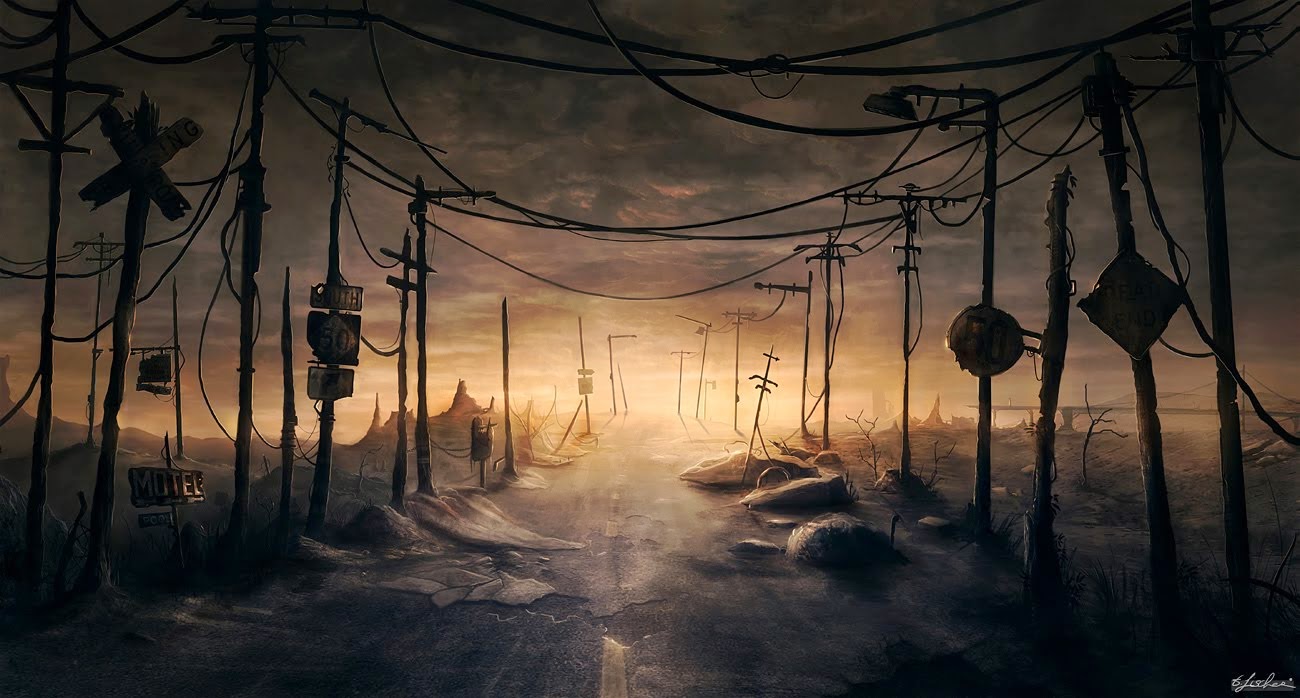You have no items in your cart. Want to get some nice things?
Go shoppingPeople pass in the twilight drift like apparitions. Planes ripple chemtrails through the clouds. From these green hills I see the highest points of commerce, the Shard, the Gherkin, and Canary Wharf. While crickets provide percussion to my dystopian daydream. I came here to escape the bass reverb of my neighbours. I came here to try and re-read The Road. The terrifying beauties of McCarthy’s apocalyptic visions have me obsessing again though. On a debate I’ve been having for over a month.
It all started nonchalantly. Writers talking writing, whose work inspired us, in his case Richard Yates, in mine, James Salter. We moved on to the short story, it’s disciplines and rewards. He wanted to know if I saw it as a stepping-stone to the novel, or as its own art form. My initial response was to agree with the latter. Having spent months on a collection of short stories for my MA I’ve come to appreciate them on a whole new level. Thinking about this more extensively though, pondering my beginnings, I wonder if there are wider considerations that I am forgetting.
With access to numerous emerging, and reputable magazines, as well as prestigious competitions, for the new, and the less established writer, the short story can be a great way of getting your work noticed. The problem with this of course is that the modern short story is at risk of becoming just another means to an end, a thread within a tapestry of essays, articles, and blogs. Which only solidifies further the impression of a pecking order, among the different literary forms. What has be taken into account though is that for any aspiring novelist, the short story is a space in which to shape your prose. It is a more practical, and approachable sphere, in which to chisel away at those early bad habits.
I once went through a phase where I was writing three or four short stories a week. The mistake I made though was that I never allowed any of these stories the time to sit. I never gave them space to breathe, so I never got from them all that I could have done. At the time I felt this overwhelming pressure to keep moving, to keep fleshing out the biog. I was writing numerous articles on everything from the music of David Bowie, to the art of Hieronymus Bosch. I never once paused to take stock of it all though. To see what was effective in my writing, and what was not.
In hindsight I can see that while I was writing a lot at the time, the pieces were not as focused as they should have been. I suspect this sort of problem is not particularly rare among new writers, and to me it seems a small part of a wider issue. An issue you see across the cultural landscape, where artists are expected to do it all. Actors release albums, or novels, singer’s star in films. There is nothing wrong with it, but is there not a risk for the writer of spreading their talent to thin? And can talent for one form really translate into success within another?
To me one of the best literary examples of this is Cormac McCarthy. Often described as America’s greatest living novelist, writers and academics routinely declare his novel Blood Meridian as one of the finest works of fiction the 20th century produced. The first McCarthy works I read were the Border Trilogy of All The Pretty Horses, The Crossing, and Cities Of The Plains, all of which demonstrated to me a masterful control of the written word. Of course others often cite the likes of Child Of God, Suttree, and The Road, as the defining pieces of an almost unparalleled oeuvre. And perhaps it is this mastery in one field that has led McCarthy into exploring his abilities in others.
Throughout his illustrious career, but more so in later years, Cormac McCarthy has written plays for both the stage, and the screen, albeit to varying degrees of success. The Stonemason, although receiving praise upon release, is rarely produced today, while the more recent, The Sunset Limited, was widely criticised for not working as a play at all. In fact some critics saw it as a missed opportunity for McCarthy, who they felt should have perhaps just written it as a novel instead.
Despite these failures to translate the power of his work from page to stage McCarthy fans might well be forgiven for having been excited about 2013’s The Counsellor. With a McCarthy penned script. An ensemble Hollywood cast. Not to mention directing duties for Ridley Scott. The film was released amid intense interest and publicity, and yet despite this, by all accounts it completely bombed. Part of this anticipation was due to the success of the Coen brother’s adaptation of McCarthy’s No Country For Old Men. The key word here of course though is adaptation.
Cormac McCarthy novels are renowned as much for their language, and philosophy, as they are for their movement across landscape, and control of action. They also, more often than not, operate in a very different way to the traditional Hollywood film structure. To be fair to McCarthy I quite liked The Counsellor, but this was largely because it had everything a McCarthy novel has, plus the visuals of Ridley Scott. To the casual cinemagoer though I imagine the film may well have been at best morally overbearing, and at worst, bafflingly under whelming. What I found most interesting though was that around the time of the films release McCarthy gave interviews where he stated that he didn’t really watch much modern cinema, even if he did reference the work of Terence Malik as something he appreciated.
Now by no means is McCarthy the first or the last author to experience Hollywood failure. William Faulkner famously walked out on Tinsel Town because he couldn’t handle the interference or the deadlines. I think what McCarthy’s experience serves to demonstrate is, that writing isn’t just writing when it comes to approaching different forms. I couldn’t imagine a great poet saying they didn’t read much poetry. I couldn’t imagine a great novelist saying they weren’t really interested in novels. Even the best of writers have to embrace the disciplines of a form if they want them to work.
J.D. Sallinger once wrote, ‘An artists only concern is to shoot for some kind of perfection, and on his own terms.’ I sometimes think a writer’s work should be thought of like a lover. If you are not completely infatuated, if you cannot be utterly dedicated, if you see yourself tempted by another, any vague plans for a future together might as well be forgotten. It is why poetry, flash fiction, short stories, and novels, should to be treated as what they are, an art within themselves, to be cherished and adored.

About Reece Choules
Reece Choules is a regular contributor to both Litro and The Culture Trip. He lives and works in South London.




